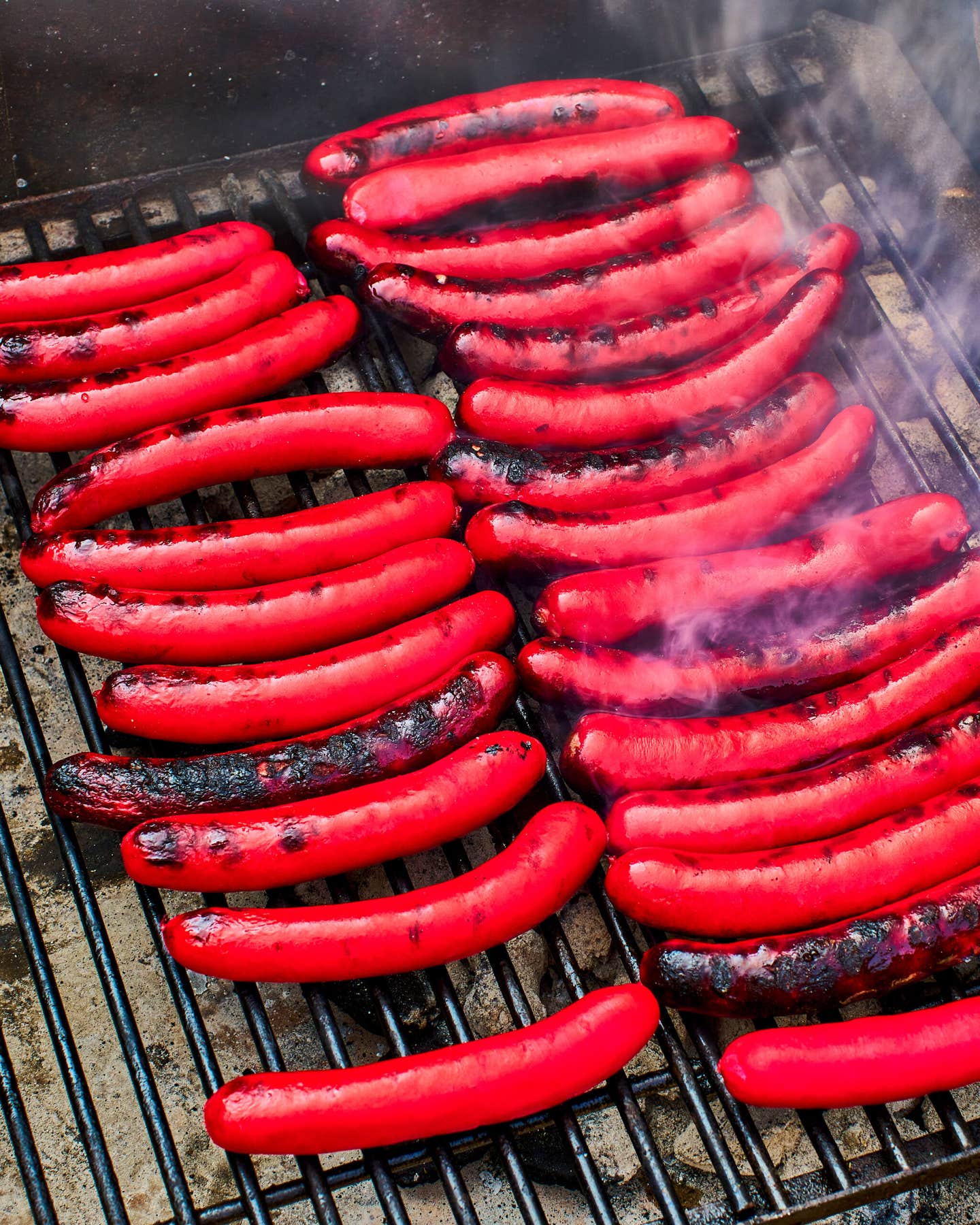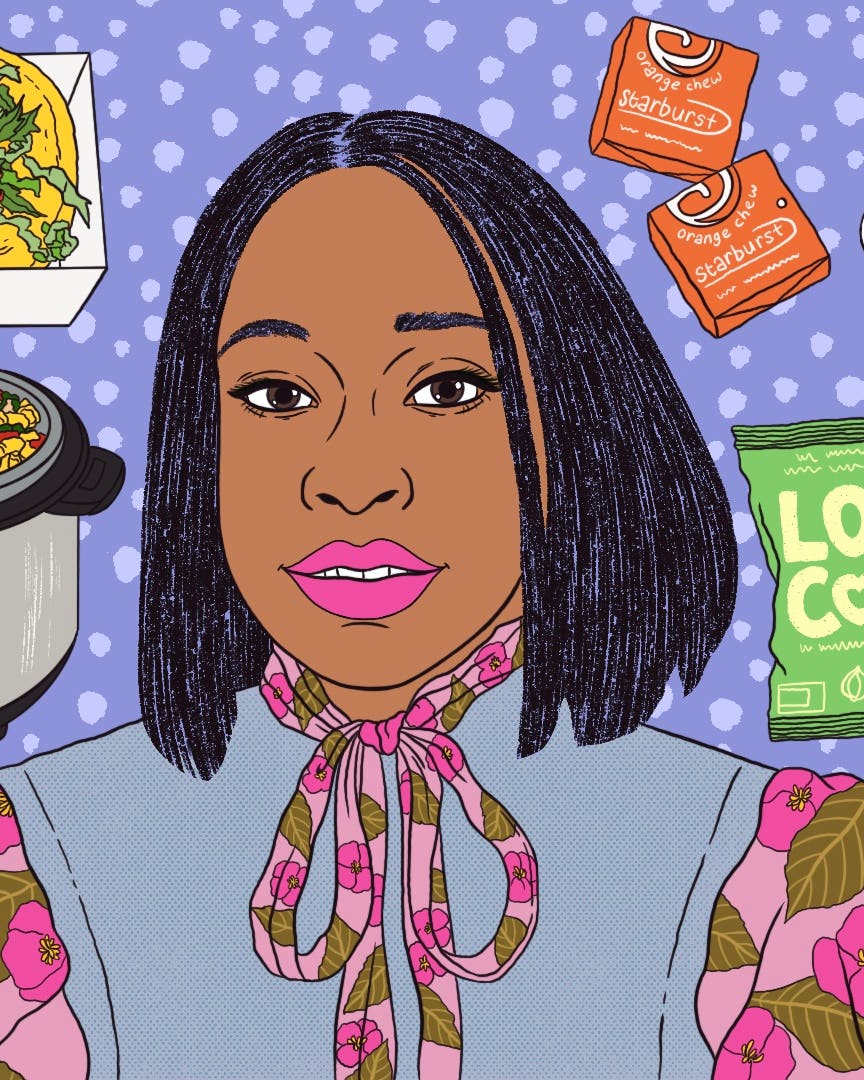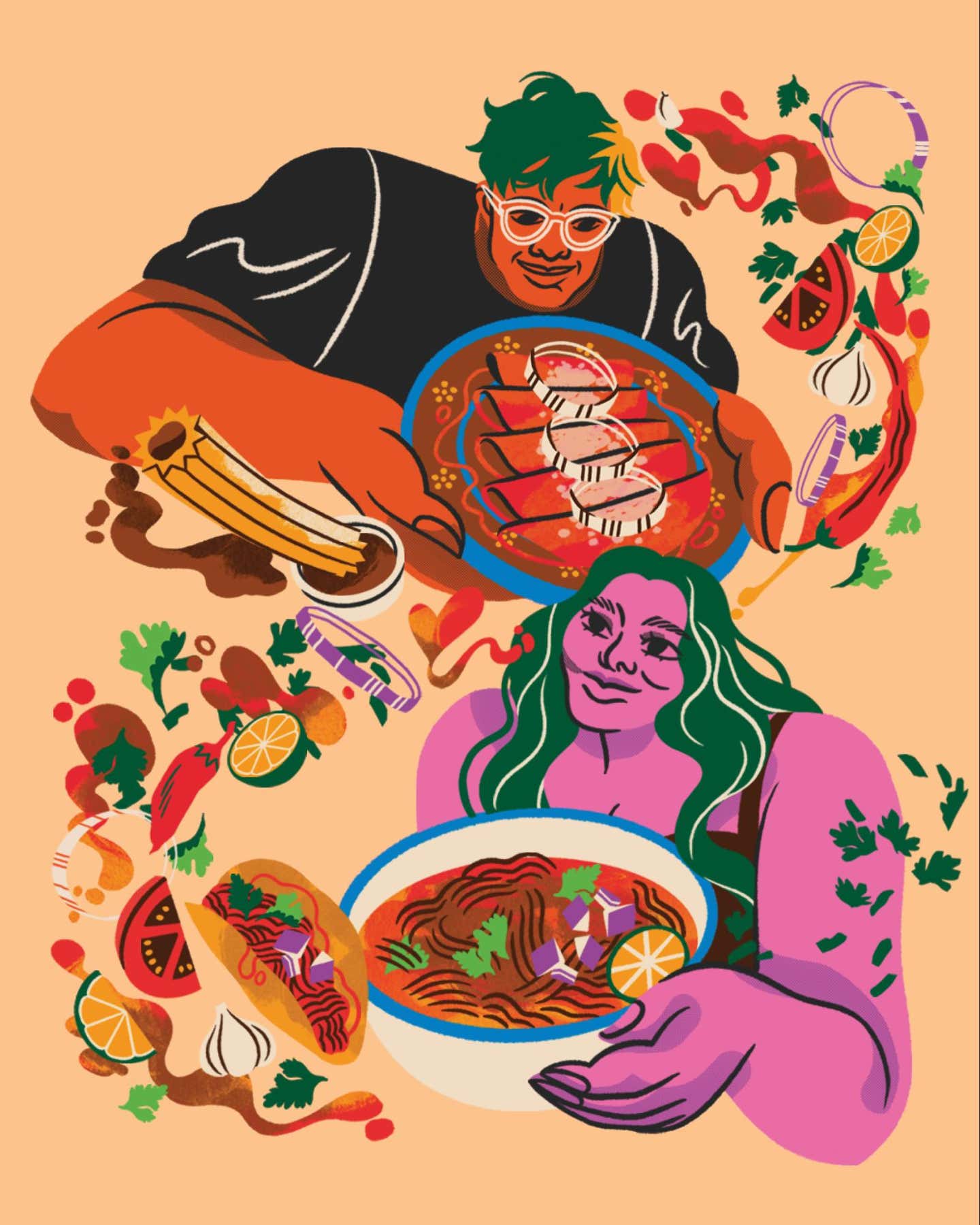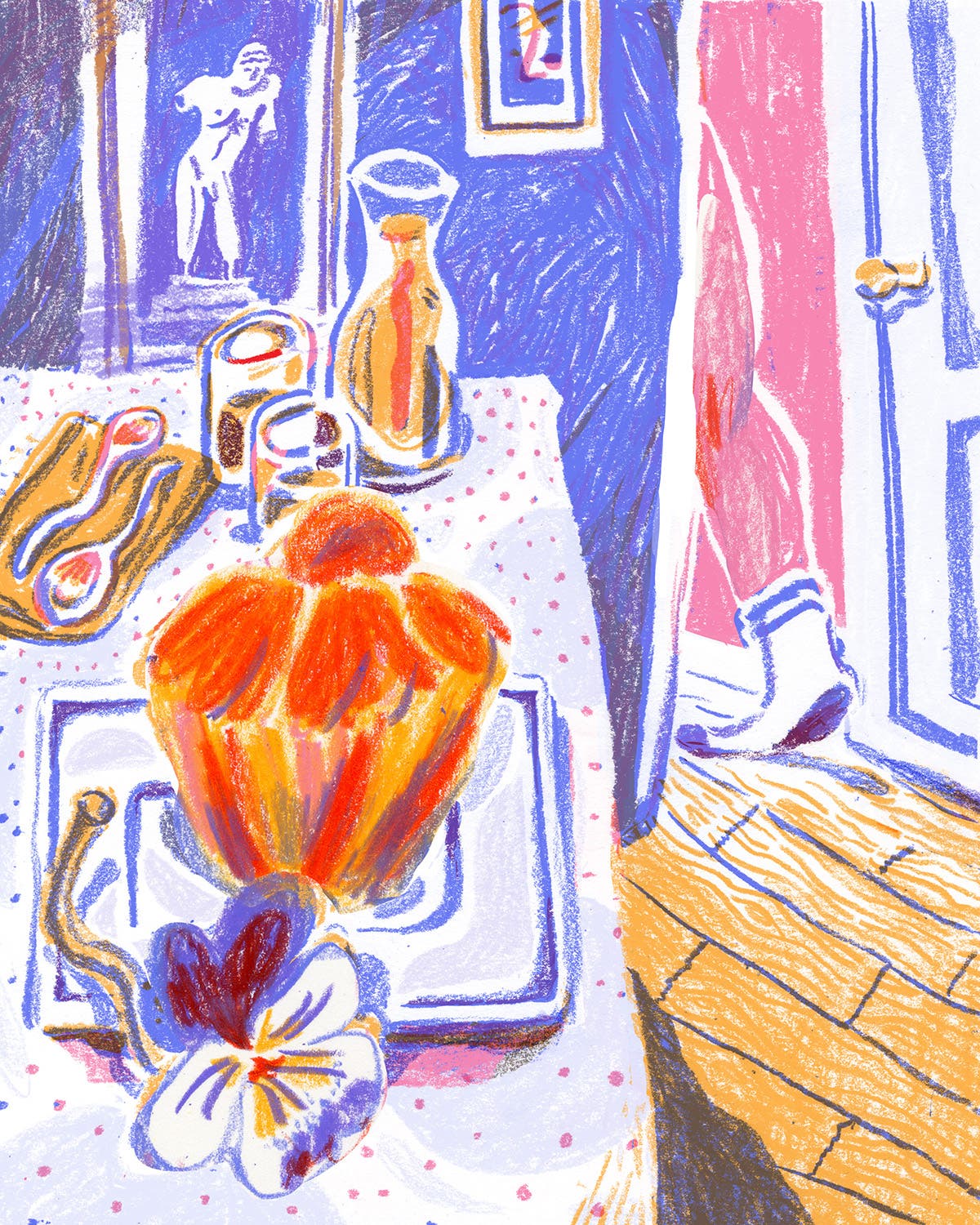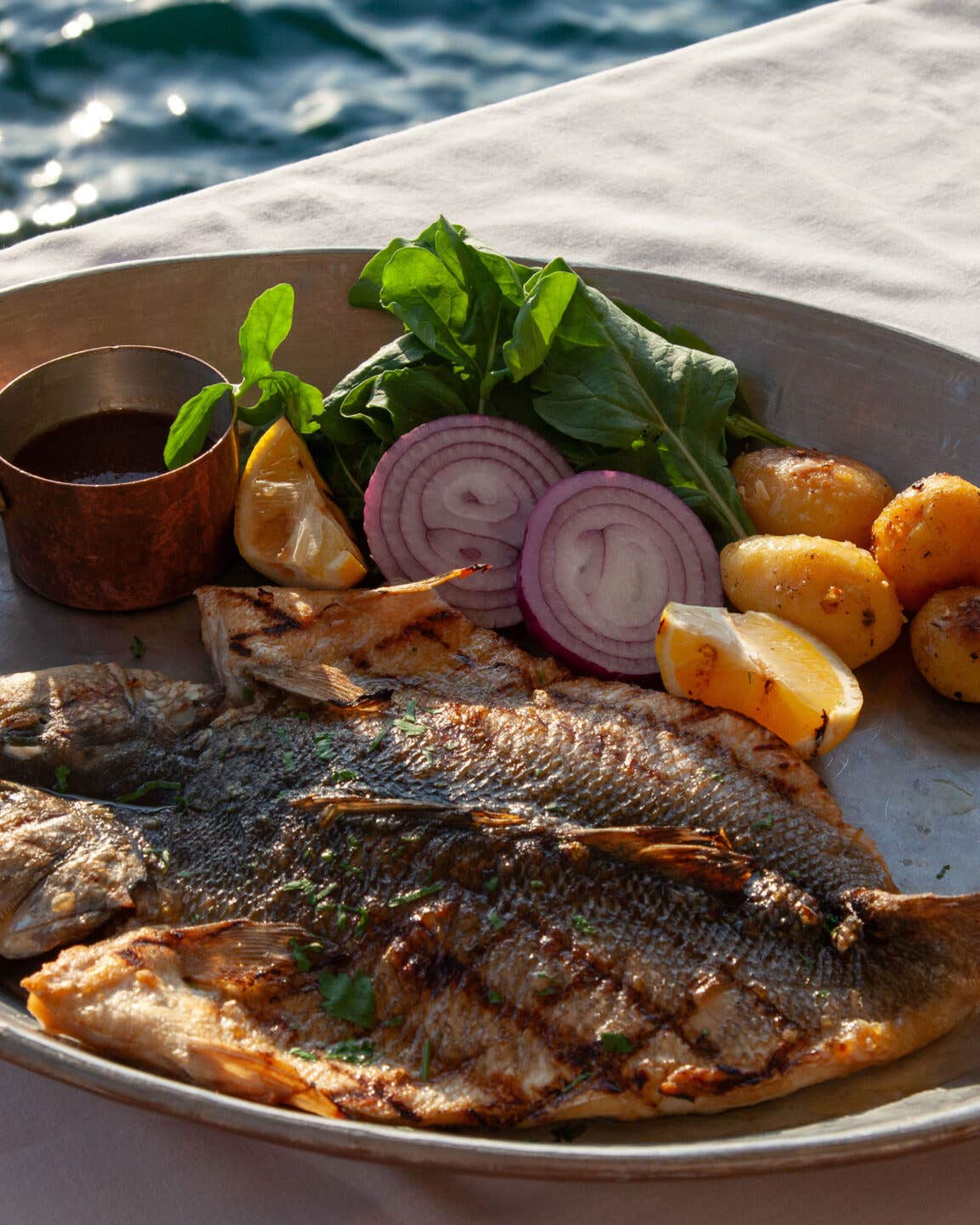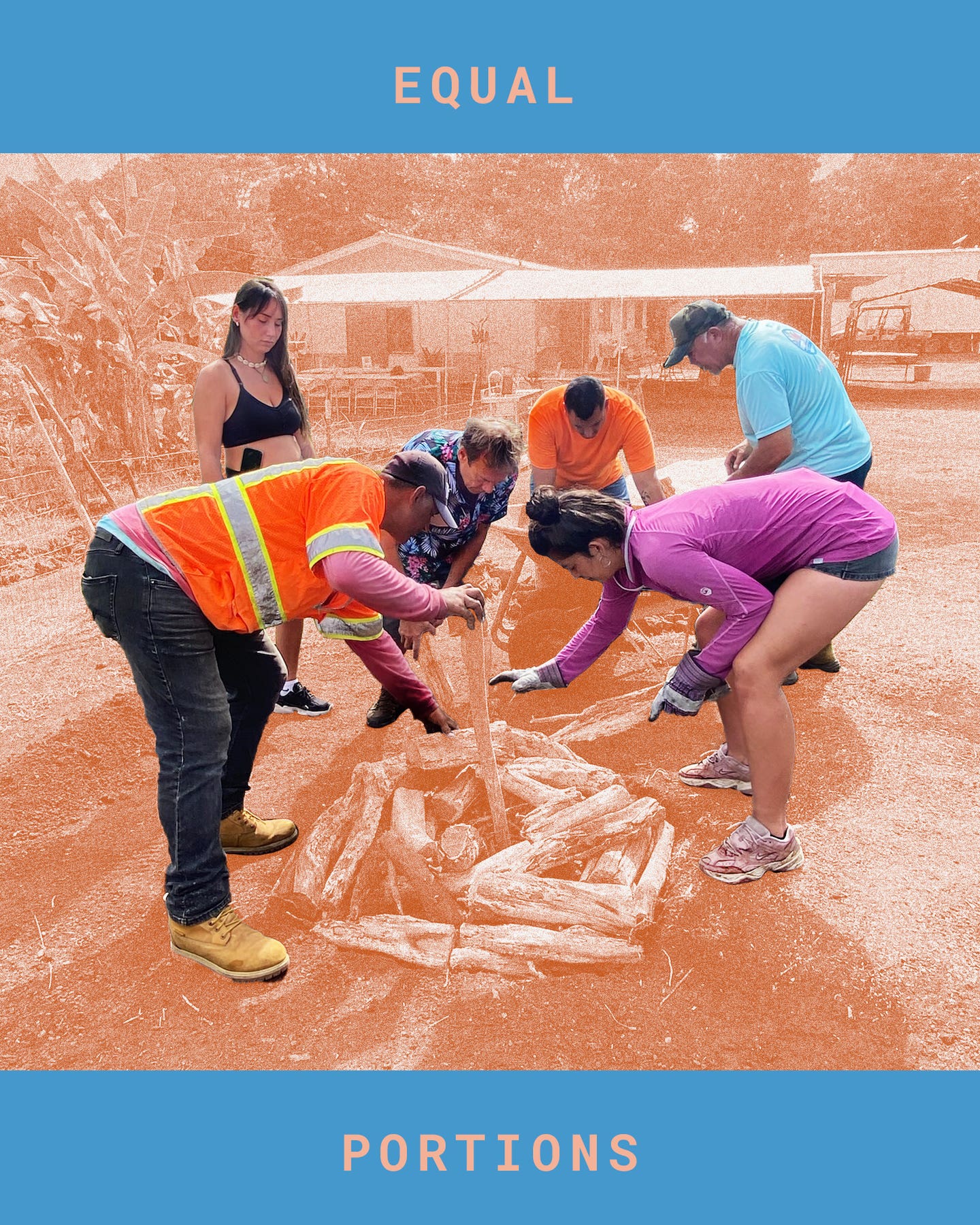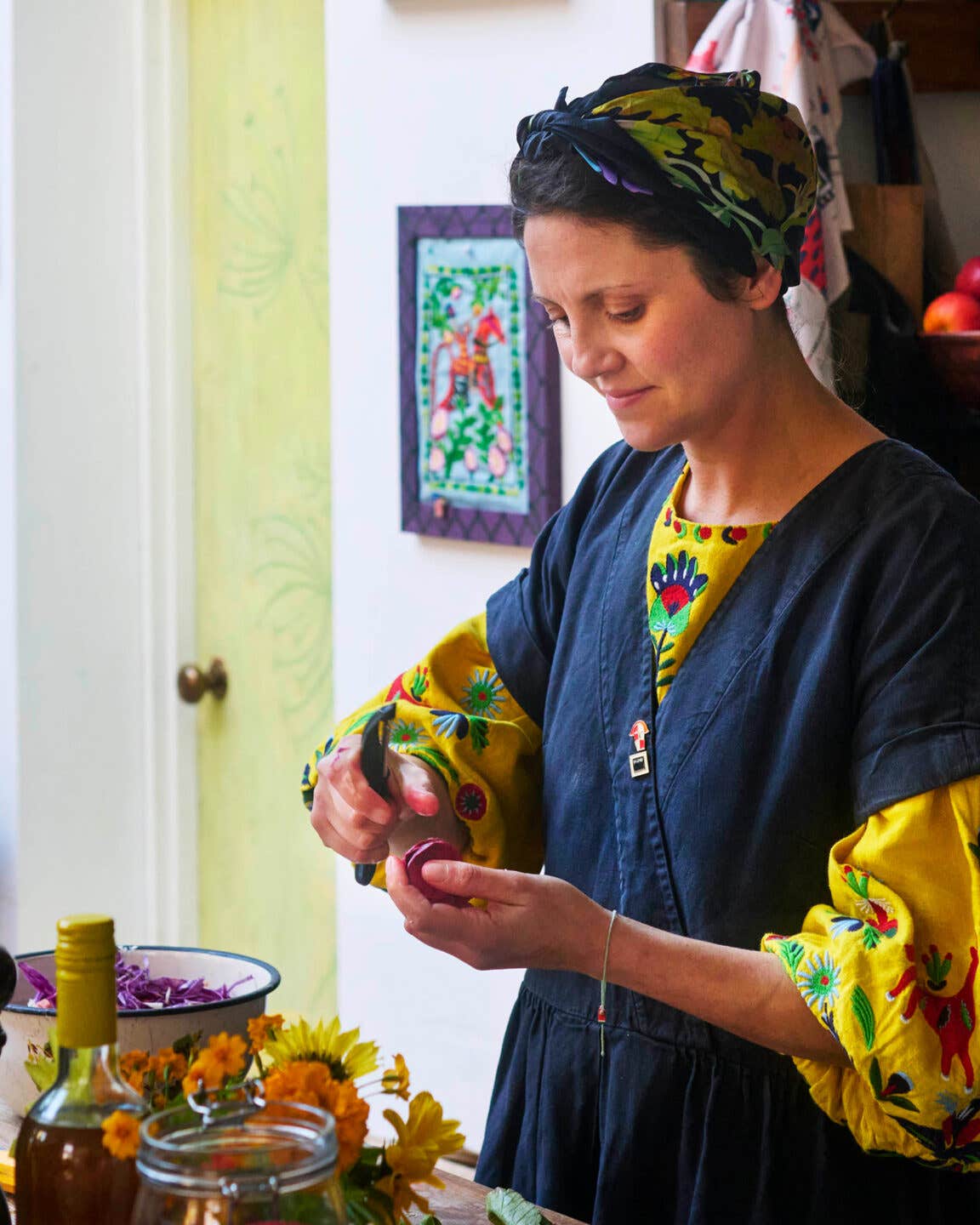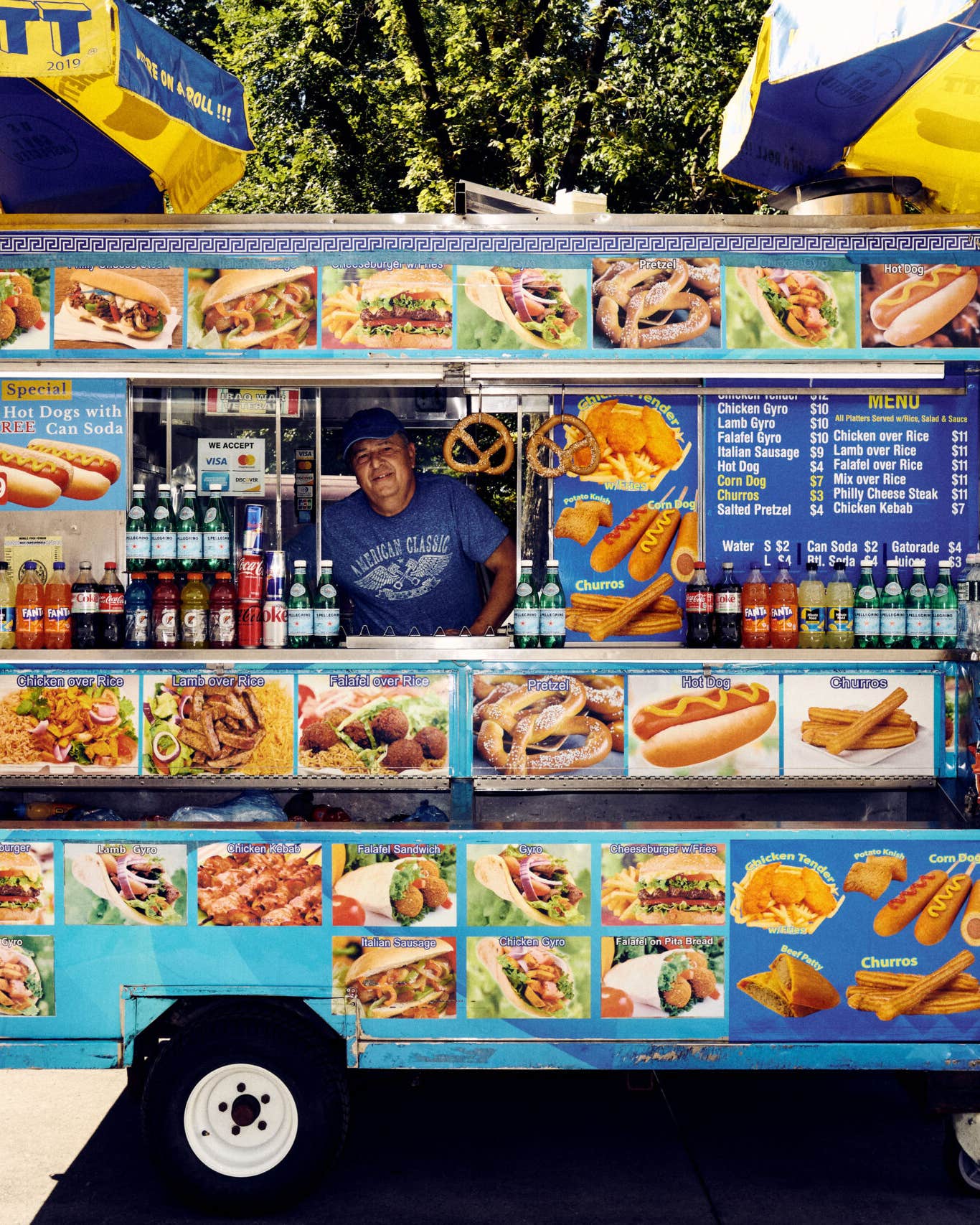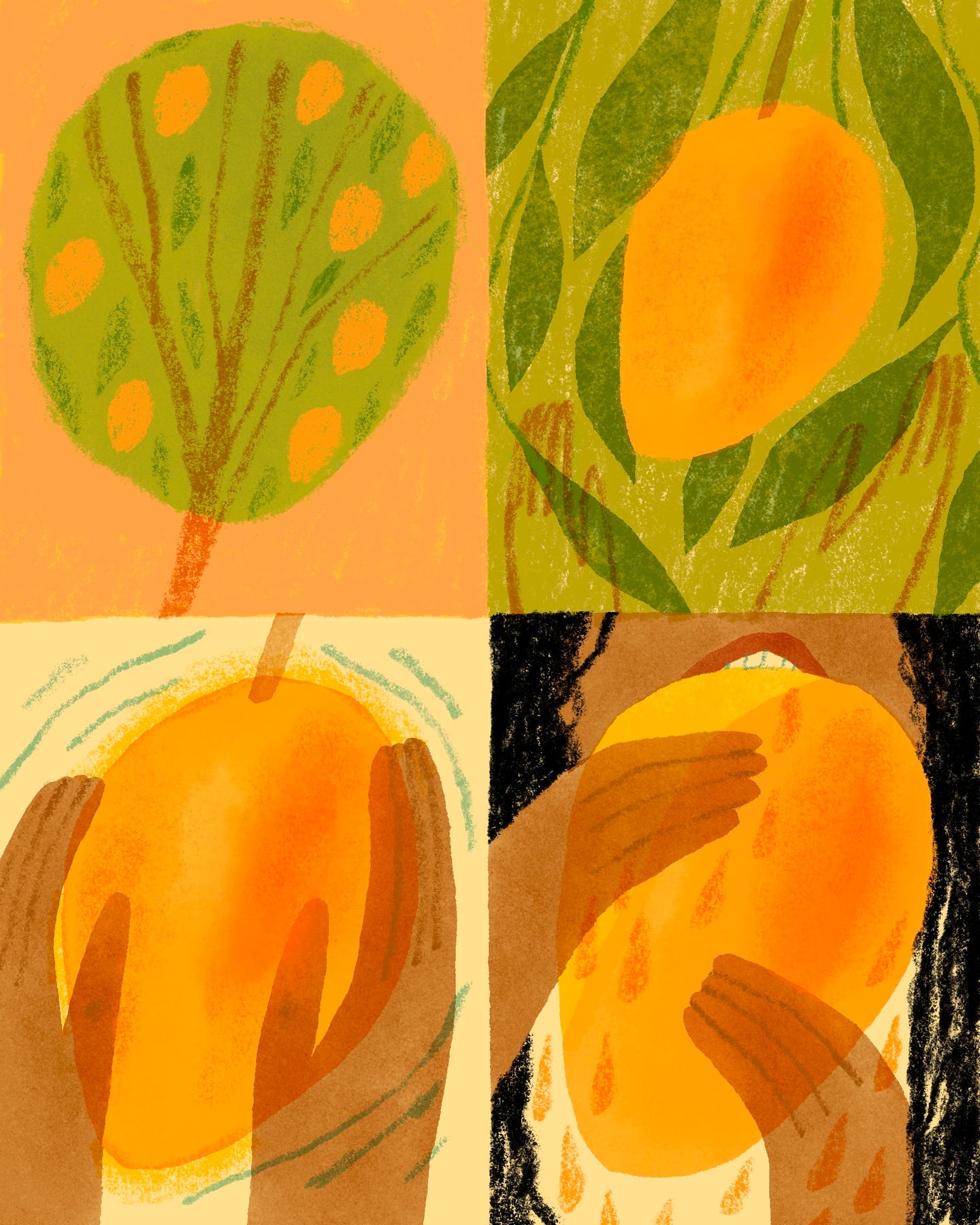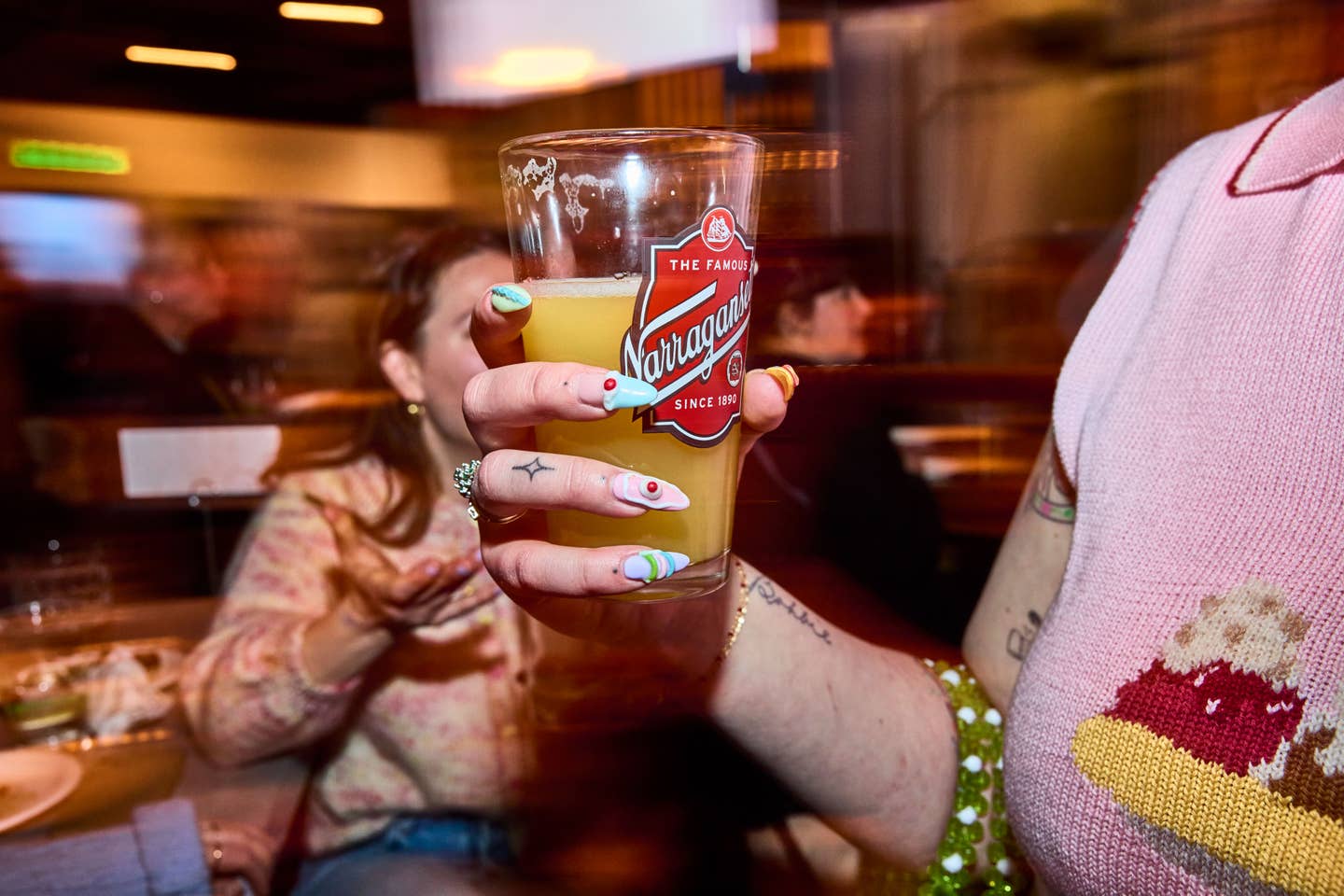
Houston Chef Chris Shepherd Is Helping Restaurant Workers Survive the Coronavirus Crisis—But He’s Worried About His Industry After The Pandemic
“My honest opinion is that the restaurants that are closing right now have a 10 percent chance of reopening.”
The James Beard Foundation named Chris Shepherd “Best Chef: Southwest” in 2014, not long after his first Houston, Texas, restaurant, Underbelly (since re-born as the steakhouse Georgia James), landed on the “best new restaurant” lists of Bon Appetit and Esquire. Last year, Shepherd celebrated the publication of his book, Cook Like a Local, with a party in SAVEUR’s test kitchen—and an appearance on Jimmy Kimmel Live. Yet this huge-hearted chef may be better-known for his bear hugs than for the “American Creole” cuisine (think Vietnamese short-rib fajitas) he honed while interning in Houston’s immigrant-run kitchens. Proof of Shepherd’s extreme warmth, generosity, and humility can be found on the menu at another one of his Houston restaurants, UB Preserv: “We’d love to have you back at UB Preserv,” the copy reads, “but we politely request that you visit one of these folks first,” followed by a list that includes the city’s Pho Saigon, HK Dim Sum, and El Hidalguense.
Shepherd, who also owns the local seafood joint One Fifth Gulf Coast, puts his money where his mouth is—in every sense of those words. The chef’s non-profit Southern Smoke Foundation, founded in 2015 to raise funds for multiple sclerosis research, shifted focus two years later, when Hurricane Harvey ravaged Houston, to provide individualized grants to food and beverage industry workers affected by the disaster. The change lasted, and now, any hospitality worker experiencing a crisis can submit an anonymous application to Southern Smoke detailing the issue and how much money is needed. The applications are reviewed by a caseworker and if approved, granted directly to the individual, no strings attached.
As Covid-19 shutters restaurants and bars nationwide, Southern Smoke has been flooded with applications from furloughed and laid-off industry workers across the country who have found themselves homeless, unable to afford medical care, or fighting to feed their families. Suddenly, the chef famous for enthusiastic embraces has had to learn how to elbow tap. “Southern Smoke was created to take care of our own,” Shepherd says, “and that’s what we all have to do to get through this.” Shepherd took a moment from preparing Georgia James’s to-go orders to tell us where restaurants currently stand and what they need to withstand the Coronavirus crisis.
How did Southern Smoke get started?
In 2015, I was putting on dinners to raise money for culinary-school scholarships when my friend, the sommelier Antonio Gianola, asked if I’d do a dinner for multiple-sclerosis research. When I asked why, he told me he’d been diagnosed with multiple sclerosis that week. So I said, “We’re not just doing a dinner, we’re throwing a party.” I had no idea what we were getting into. It was supposed to be 200 people in the back parking lot, but when we went to the permit office, they said “No, we’re going to block off all the streets around you and give you a stage for live music and give you the people for the infrastructure.” When I declared that we were going to raise $100,000, the Multiple Sclerosis Society laughed. They were the same people who cried when we handed them a check for $181,000. That was how Southern Smoke officially came to be. We were a month and a half out from year three of MS fundraising when Hurricane Harvey hit Houston. The hurricane put some serious hurt on our city, and I started getting phone calls from around the country asking how to donate money to restaurants affected. I realized that there really wasn’t a way. There were funds, but no way for them to reach the people in the industry.
That year, we put a call out for applications from those affected by Harvey. It didn't matter if you planted the vegetables, or delivered the milk, or worked the drive-through, or owned the restaurant. Dishwasher, busser, waiter—didn’t matter. If you were in a time of crisis, you could apply. We received around 300 applications and wrote 139 checks for a total of half a million dollars. At that point, we realized an emergency relief fund needed to happen. People in our industry had no one to turn to. Workers in crisis needed relief that was immediate.
Why does the hospitality industry get hit particularly hard in times of crisis?
In the restaurant business, workers live week-to-week and paycheck-to-paycheck. This industry is driven by heart, passion, and drive. People in hospitality are usually the first ones who take care of everyone else in a crisis, but right now we’re hurting. How can restaurant workers and owners pay taxes, rent, and utilities with no income coming in?
My restaurant had to furlough 160 people; we’re doing to-go orders just to keep the bills paid, so that our staff has a home to come back to. That's the goal.
How many applications for grants has Southern Smoke received since the coronavirus was recognized as a pandemic?
More than 17,000 in the past four weeks alone. To put that in perspective, remember that we received 300 applications in the month and a half after Harvey. At the beginning of this year, Southern Smoke had 2.5 employees. Now we have over 30. We’ve hired furloughed industry folks to work as case managers. So now we’ll be able to go through applications much faster. Medical emergencies are given priority—are you dying? Next, we make sure your rent and utilities are paid, that you’re not going to be evicted, you’re not going to be living on the street, that you don't have kids who are starving.
And how much money, related to the pandemic, have you given away thus far?
So far, $607,000 to 312 cases, only 52 of which were from Houston. On average, we’re giving out $2,000 per grant, 30 grants a day. Every day, the case managers will call me saying, “Okay, we’re crying again.” Yet no one asks for more than they need. It’s like: “I need exactly this much for exactly this.” I don’t know the names. I don’t know the scenarios. I will never know who is getting one penny, unless that person wants me to know. It’s always anonymous except to the case worker. We do it this way because people in this industry are stubborn and hardheaded. We don’t have time for pride. There’s two scenarios: living and not living. You gotta live. Let’s go.
Is our government doing enough?
The loan program for restaurants, part of the coronavirus stimulus package, went live on April 3rd. The online system crashed immediately. It’s first come, first serve, so how do they expect it to not crash? And what about the mom-and-pop places that don't understand the system? Because it hasn’t been clear. We’re supposed to be able to receive two and a half times our payroll for the month, so we should be able to make it through June 15th. But for Houston, specifically, we're probably three weeks out before we see the true impact of the virus, and that keeps us shut down till mid or late May. That doesn’t give much of a window to get back up and running, or any wiggle room if it takes longer before we can reopen.
What I keep hearing from leaders of the world is, “The restaurants are gonna come back. They may not be the same people. They may not look the same. But they’ll be back.” That’s bullshit. We didn't work 30 years to get where we are to have somebody else run our establishments. How about I fire the politicians and someone else will have their jobs? It’ll look different, but it’s fine. Let's see how they feel about that. I hope those people who are telling me the restaurants are gonna look different learn how to cook. Because when they need someone to cater their gala, I’m not doing it.
So what do you think the future looks like for people in your line of work?
My honest opinion is that the restaurants that are closing right now have a 10 percent chance of reopening. I’m doing the best that I can to keep my staff as safe as possible. We’re fortunate enough that we’re not a big city with small restaurants. Houston is naturally socially distanced. Georgia James is 10,000 sq feet and we have 14 people working in the space. I’ll pull the plug as soon as there's a financial safety net. But if I pull the plug at this point, we're not going to be here when it's over. I want to make sure that the 170 people who rely on us, whose families rely on us, have somewhere to come back to. I’m going to fight for our extended family.
In Houston, where we have so many mom-and-pops and such culturally diverse restaurants, I don't think a lot of them are going to be able to come back. The ones that are even having the conversation of “can we make it?” are probably not going to.
What can the general public do to help?
If your local restaurants are doing to-go or curbside, order from them. And if you’ve got the means, donate to Southern Smoke. Most importantly, if you’re in the restaurant industry and need help, apply for it. We're all in this together. We have to keep each other going.
Visit www.southersmoke.org to learn more or make a donation.
Keep Reading
Continue to Next Story
